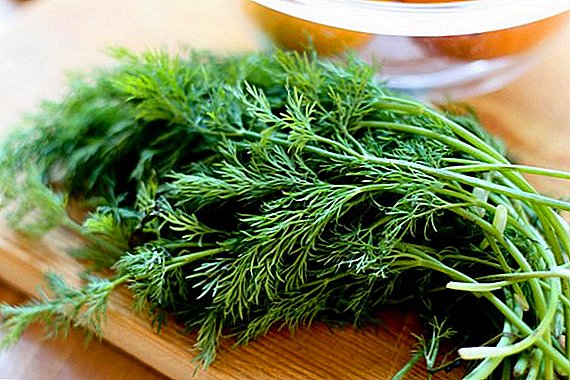 Among the variety of bird eggs, the most common in our diet are chicken and quail. In this article we will try to figure out whether it is possible to use them raw, what is the difference between the two, and how significant it is.
Among the variety of bird eggs, the most common in our diet are chicken and quail. In this article we will try to figure out whether it is possible to use them raw, what is the difference between the two, and how significant it is.
The composition and nutritional value of raw eggs
According to the criteria of food importance, bird eggs have the following indicators per 100 g:
- chicken: proteins - 12.7 g (daily rate - 27.6%); fats - 11.5 g (daily allowance - 20,%); carbohydrates - 0.7 g (daily allowance - 0.3%); saturated fatty acids - 3.4 g (daily rate - 18.9%); polyunsaturated fatty acids - 1.9 g (daily rate - 31.8%); monounsaturated fatty acids - 3.6 g (daily allowance - 10.1%);
- quail: proteins - 11.9 g (daily rate - 25.9%); fats - 13.1 g (daily rate - 23.4%); carbohydrates - 0.6 g (daily allowance - 0.2%); saturated fatty acids - 3.5 g (daily rate - 19.1%); polyunsaturated fatty acids - 1.3 g (daily allowance - 22%); monounsaturated fatty acids - 4.3 g (daily rate - 12%).
 Variants of the color of the shell of chicken eggs can be from white to brown, while the above features in no way affect the nutritional value and taste of the product, this is just a sign of the breed of chicken that laid it down.
Variants of the color of the shell of chicken eggs can be from white to brown, while the above features in no way affect the nutritional value and taste of the product, this is just a sign of the breed of chicken that laid it down.100 g of the mass of both chicken and quail eggs contain an average number of calories (158 and 160 g, respectively).
Chicken eggs famous for the presence of beneficial amino acids, lipids, as well as a large number of vitamins: retinol (A), water-soluble vitamins of group B (thiamine, riboflavin, choline, pantothenic acid, pyridoxine, folic acid, cobalamins), tocopherol (E), biotin (H), calciferol (D), phylloquinone (K), nicotinic acid (PP).
The chemical composition of the product is represented by the following elements: fluorine (F), zinc (Zn), copper (Cu), molybdenum (Mo), cobalt (Co), manganese (Mn), iron (Fe), phosphorus (P), magnesium (Mg ), sodium (Na), potassium (K), calcium (Ca) and others.
Learn more about the value of quail eggs, guinea fowls.Features quail eggs from chickens consist in a smaller mass (10-12 g), thinner shells, as well as color characteristics (round dark brown spots of different size on a gray or white background).
 Representatives of the vitamin variety of quail eggs include B vitamins (thiamine - B1, riboflavin - B2, cobalamin - B12), vitamin A, nicotinic acid, and others. The mineral complex is represented by the following elements: phosphorus (P), calcium and potassium (Ca and K), copper (Cu), iron (Fe), cobalt (Co), selenium (Se).
Representatives of the vitamin variety of quail eggs include B vitamins (thiamine - B1, riboflavin - B2, cobalamin - B12), vitamin A, nicotinic acid, and others. The mineral complex is represented by the following elements: phosphorus (P), calcium and potassium (Ca and K), copper (Cu), iron (Fe), cobalt (Co), selenium (Se).A unique amount of amino acids and carotenoids, as well as a moderate figure of lipid capacity, is another plus of the biological value of these products.
Contrary to popular belief, the amount of cholesterol contained in eggs does not reach a dangerous level due to the fact that the same product contains other beneficial substances that inhibit the absorption of cholesterol and contribute to its rapid subsequent removal from the body (lecithin, choline, phospholipids).
Important! According to medical recommendations, chicken eggs are advised to be used by elderly people, middle-aged people with disabilities of the pancreas and digestive system, as well as those who are in a working environment associated with hazardous chemicals (arsenic, mercury).

Learn more about how to choose a breed of quail for breeding, how to keep a bird, how to feed it, how to make a cage, how to get the young with an incubator.
The benefits of quail and chicken eggs in their raw form
The most important feature of this product is that it is in its raw form that protein is contained, which, in the presence of physical exertion, is 98% absorbed by the human body.
Due to the absence of heat treatment of the product, the nutrients and trace elements are not destroyed, and the peculiar consistency produces an enveloping effect on the gastric mucosa, thus lowering the acidity level of the gastric juice.
The antibacterial agent lysozyme, which is part of the raw product, eliminates pathogens and restores the normal microflora of the digestive tract.
Find out what the best breeds of laying hens are, how to build a chicken coop, make a roost, nest, how to feed, what vitamins to give, how to increase egg production in the winter, how to overgrow eggs and get chickens out.Another component - lecithin - normalizes the liver, develops mental abilities and prevents the formation of plaques on the walls of blood vessels, and lutein has a beneficial effect on visual function, preventing retinal degeneration and the development of cataracts.
General benefits
 The beneficial effects of raw chicken eggs are observed in the following effects:
The beneficial effects of raw chicken eggs are observed in the following effects:
- improve the process of formation, development and maturation of blood cells;
- prevent vision problems, especially cataracts, protect the optic nerve and prevent the development of its atrophy;
- prevent the occurrence of injuries and fractures due to the strengthening of the skeletal system;
- increase the antibacterial properties and protective functions of the body, as well as the resistance of the immune system to diseases;
- improve memory, mental and physical performance, increase activity and maintain a vigorous state;
- prevent skin aging and slow down aging;
- have a calming effect on the nervous system;
- restore normal blood pressure levels;
- actively affect the normalization of weight and help in the fight against excess pounds;
- improve the functioning of the respiratory system;
- reduce the risk of onset and the development of cancer.
Did you know? The largest bird's egg in the world is an ostrich, and the smallest is a hummingbird. The first reaches diametral sizes up to 20 cm, and the second - only 12 mm. At the same time, in 2010, the Guinness Book of Records recorded a case when a hen laid an egg with a diameter of 23 cm.
 Quail eggs are representatives of the diet and are recommended for use by people with special requirements: in childhood and old age, as well as women during pregnancy.
Quail eggs are representatives of the diet and are recommended for use by people with special requirements: in childhood and old age, as well as women during pregnancy.Also, a positive effect from their reception can be expected in the following situations:
- problems with overweight, as well as general functional disorders of the gastrointestinal tract;
- disorders of the nervous system, apathy, fatigue;
- diseases of the heart and blood vessels;
- poor memory, low concentration of attention;
- weakened immunity.
Beekeeping products - propolis, bee venom, royal jelly, zabrus, royal honey, pollen, wax, moth wax, perga, honey - improve immunity.
What are the benefits for men
Raw eggs have long been known as an effective means of increasing the level of potency in men. Regular use of this product can improve the quantitative and qualitative indicators of erection and ejaculation.  The content in raw eggs of a small amount of animal fats, as well as amino acids that the human body cannot synthesize on its own, contributes to the normal production of male sex hormones. Removing fatigue and restoring strength, a raw egg puts in order the reproductive functionality of a man.
The content in raw eggs of a small amount of animal fats, as well as amino acids that the human body cannot synthesize on its own, contributes to the normal production of male sex hormones. Removing fatigue and restoring strength, a raw egg puts in order the reproductive functionality of a man.
The history of the use of this product in its raw form by representatives of the strong half of humanity dates back to the days of Ancient Russia.
Can children
Raw quail eggs are one of the main components of baby food, and if diathesis is detected in a child, the product will play an important role in combating it. Their regular use also prevents calcium deficiency in children and makes them more active, mobile, inquisitive and clever.
Pumpkin, white carrots, turnips, bananas, zucchini, carrots, beets, and apples are widely used for baby food.This product can be introduced into the diet, even infants, only gradually. As for chicken eggs, then you need to be careful and give them raw only after consulting with a pediatrician.

Benefits for women and use during pregnancy
Raw eggs restore the stable hormones of women, maintaining normal reproductive functionality due to the presence of niacin in them. Regular intake of the product reduces the risk of breast tumors and other cancers by means of choline.
The fair sex in an interesting position is recommended to use raw eggs to strengthen the healthy state of the teeth and hair.
Folic acid, which doctors advise women to take in any form when planning a pregnancy, while carrying a child, as well as after birth, is part of this product and has a beneficial effect on the health of the mother and baby.
Folic acid contain cucumbers, quince, beet leaves, green pepper, cabbage, cantaloupe, mushrooms, peaches, carrots, rosemary.
Damage to raw eggs
The danger of eating eggs is that this product in its raw form can trigger the development of a serious disease - salmonellosis (acute intestinal infection caused by specific bacteria that may be in the liquid egg portion). In the case of the chicken product, the risk increases, because quails are more resistant to various infections. Salmonella bacteria usually get into the eggs through the shell, so as a method of caution, you must disinfect it: thoroughly rinse the outer shell of the product, and if there is a possibility - stand for a few minutes in soda solution.
Important! At low temperatures, salmonellae do not die, they remain viable even after freezing.Contraindications to the use of raw eggs are as follows:
- food intolerance to protein (allergy);
- diseases of the kidneys and liver;
- diabetes mellitus (there is a risk of heart attack or stroke);
- inflammation of the pancreas of any severity (pancreatitis).

When pancreatitis should pay attention to fennel, lingonberries, milk with propolis, elder, irgu, barley, orchid.There is the following method, designed to determine the freshness of the product: you need to take a sufficiently deep container with cold water and place an egg there. You are waited by one of 3 possible results, having estimated which, you independently establish the level of product safety for use:
- It remains to lie in a horizontal position at the bottom of the vessel - fresh.
- The sharp end is at the bottom, and the blunt one is slightly raised upwards - suitable, but it is no longer recommended to use it raw.
- Float to the surface of the water - stale, to use in any form is not suitable.
Eating raw eggs
As for the daily norm, then an ordinary person who does not play sports, will use 1-2 eggs per day and is absolutely safe. With the usual rhythm of life, doctors recommend a healthy adult to take 1 piece per day on an empty stomach to prevent diseases of the digestive system.
In sport, raw eggs are used as an integral part of protein shakes designed to quickly build muscle. They saturate the body with essential amino acids and other beneficial substances. Very useful dessert eggnog, prepared by beating eggs with sugar, has proven itself in the fight against diseases associated with the work of the respiratory organs, as well as their prevention.
The easiest way to cook eggnog: you need to take egg yolks (2 pcs.) And sugar (2 tablespoons), then with a mixer or a whisk in a deep bowl, beat the ingredients until smooth. By the way, if the yolks are slightly warmed up, this will contribute to their faster transition to a uniform texture. It is important that the yolk mixture becomes white, and the sugar grains dissolve in the total mass.
Today, there are many recipes for adding additional ingredients: these can be milk and butter, natural honey and lemon zest, as well as brandy, berries, etc.
Find out what properties cotton, black-and-white, willow-wort, hawthorn, may, espartsetovy, buckwheat, lime, acacia, tonic, acacia, from pine shoots, chestnut, rapeseed, pumpkin, phacelia honey possess.The recipe for "cough syrup" based on raw egg yolk includes such ingredients:
- butter (10 g);
- raw yolk (2 pieces);
- flour (20 g);
- honey (30 g).
Did you know? In ancient China, which many scientists consider to be the birthplace of quail, quail battles were popular, they gathered a lot of spectators. By the way, in some areas of Tajikistan such “entertainment” is present even today.Concerning use of raw eggs in cosmetology, then whipped proteins are used as masks for faded skin, as well as for the appearance of wrinkles. Whipped yolk lotions are used as tonic and moisturizing products for face and hair.
In the latter case, the mixture prevents dandruff and hair loss. The combination of yolk and honey has a beneficial effect on dry skin, and in the case of high fat content, protein mixed with hydrogen peroxide or lemon juice will help.
Crude protein mixture is also used in traditional medicine for the lubrication of burns, which contributes to the rapid healing of wounds.
Egg raw mass not only softens the vocal cords, eliminating sore throat and hoarseness, but also envelops the gastric mucosa, and the antioxidants contained in the product rejuvenate the body.  The rules and stages of receiving raw egg products for growth and strengthening muscles in sports:
The rules and stages of receiving raw egg products for growth and strengthening muscles in sports:
- morning exercise requires fixing the result of taking eggs in the evening (3-4 chicken / 5-7 quail daily for several weeks);
- training in the afternoon provides for the use of the egg mass in the same amount in the morning;
- a break for 7-10 days;
- resumption of ingestion of raw eggs.
Storage rules
There are certain rules to preserve the freshness of eggs at home, and accordingly - and their health. If you have your own chicken coop, just collect the chicken gifts in a timely manner.
When buying a product in the markets from the hands of grandmothers, be careful: not all owners carefully monitor the collection process (chickens walking around the yard freely are known for their propensity to hide their eggs in order to sit off their offspring, and therefore these same grandmothers may notice eggs after a few days or weeks).  Products sold in the supermarket are subject to preliminary sanitary and epidemiological control. By existing standards, each egg supplied from a bird factory must be labeled. The first letter provides the shelf life of the product:
Products sold in the supermarket are subject to preliminary sanitary and epidemiological control. By existing standards, each egg supplied from a bird factory must be labeled. The first letter provides the shelf life of the product:
- D (dietary) - up to 7 days;
- C (table) - up to 25 days.
- B (highest category) - from 75 g;
- O (selected product) - 65-75 g;
- 1 (first category) - 55-65 g;
- 2 (second category) - 45-55 g;
- 3 (third category) - 35-45 g.
- conditions involving a temperature level of 0 to 10 degrees (preferably a refrigerating chamber);
- location: the sharp edge of the egg should be directed downwards (there is a separate shell at the blunt end, which may contain dangerous bacteria, the risk of their falling into the egg liquid mixture and further reproduction increases with a long blunt end position);
- it is better to store the product in a special package or in a closed container of the refrigerator in order to prevent foreign odors from being absorbed through the pores of the shell.

Did you know? In ancient Babylon, hens and roosters were worshiped, representatives of Zoroastrianism also considered them sacred animals.If storage standards are observed, chicken eggs can be kept in the fridge from 10 days to three weeks, taking into account labeling, and in the case of quails, this period may be slightly longer - from 2 weeks to 28 days.
Thus, we can conclude that chicken and quail eggs are unique products that contain many nutrients and components that will saturate the body with all necessary and prevent many diseases.












